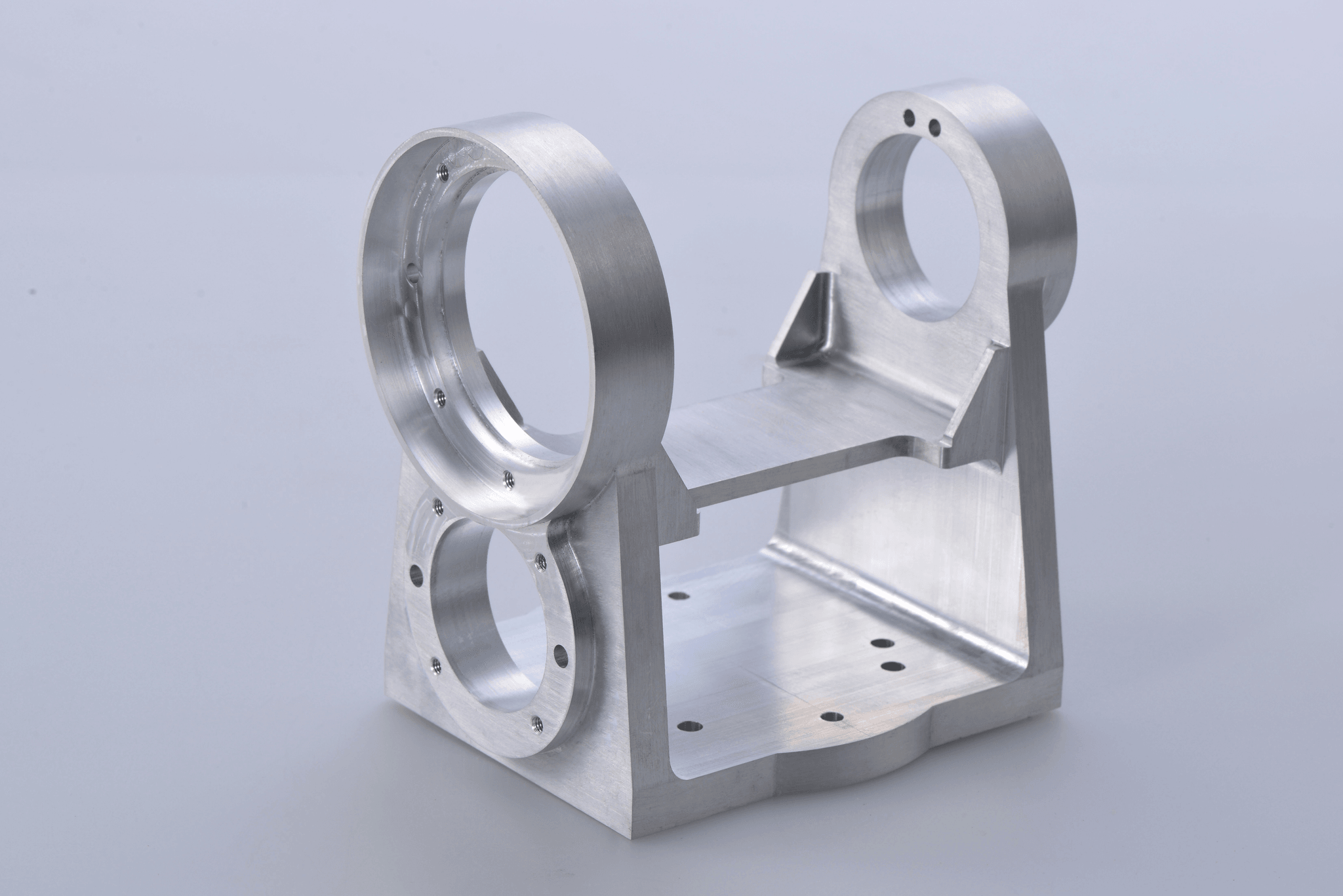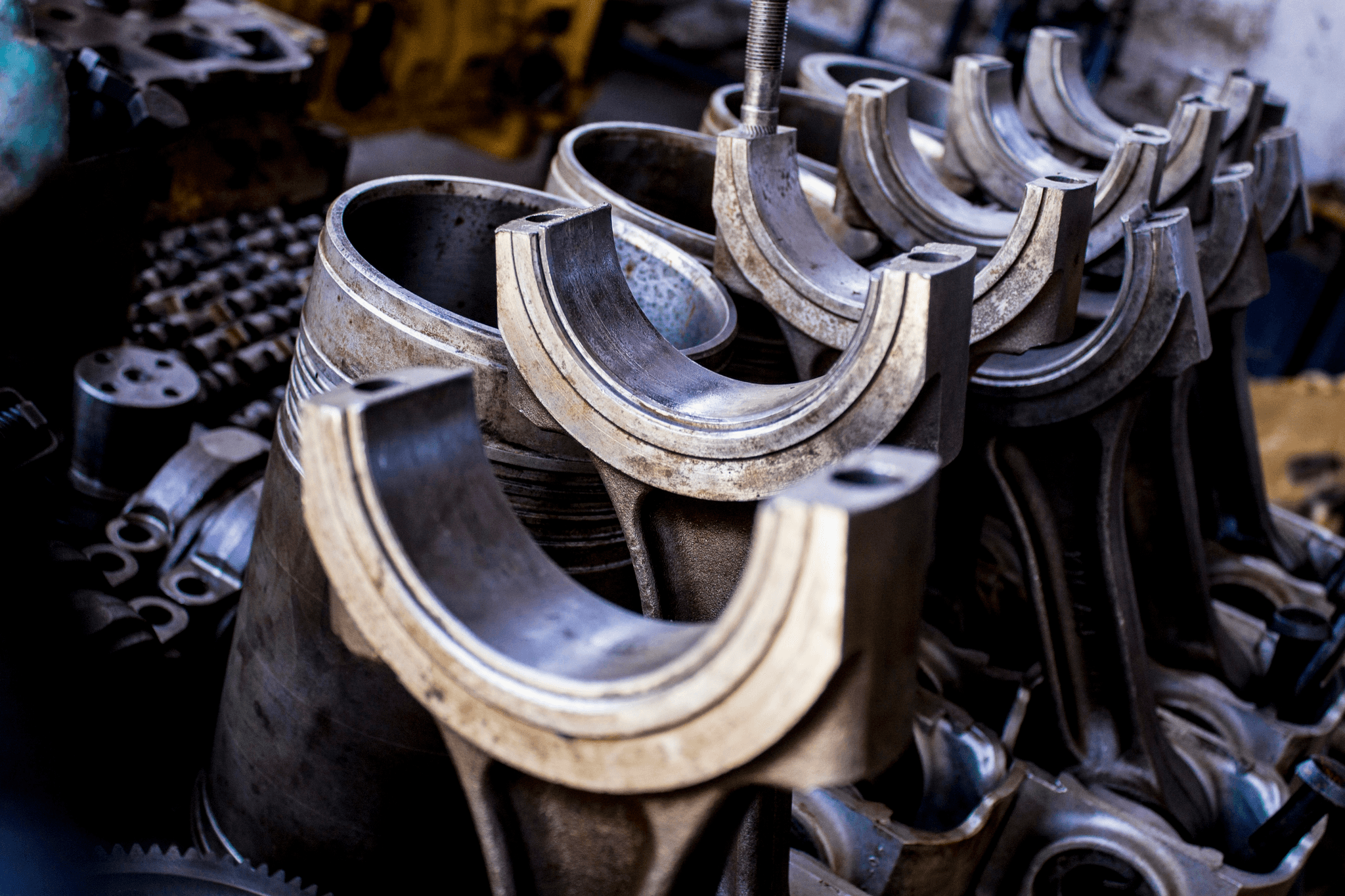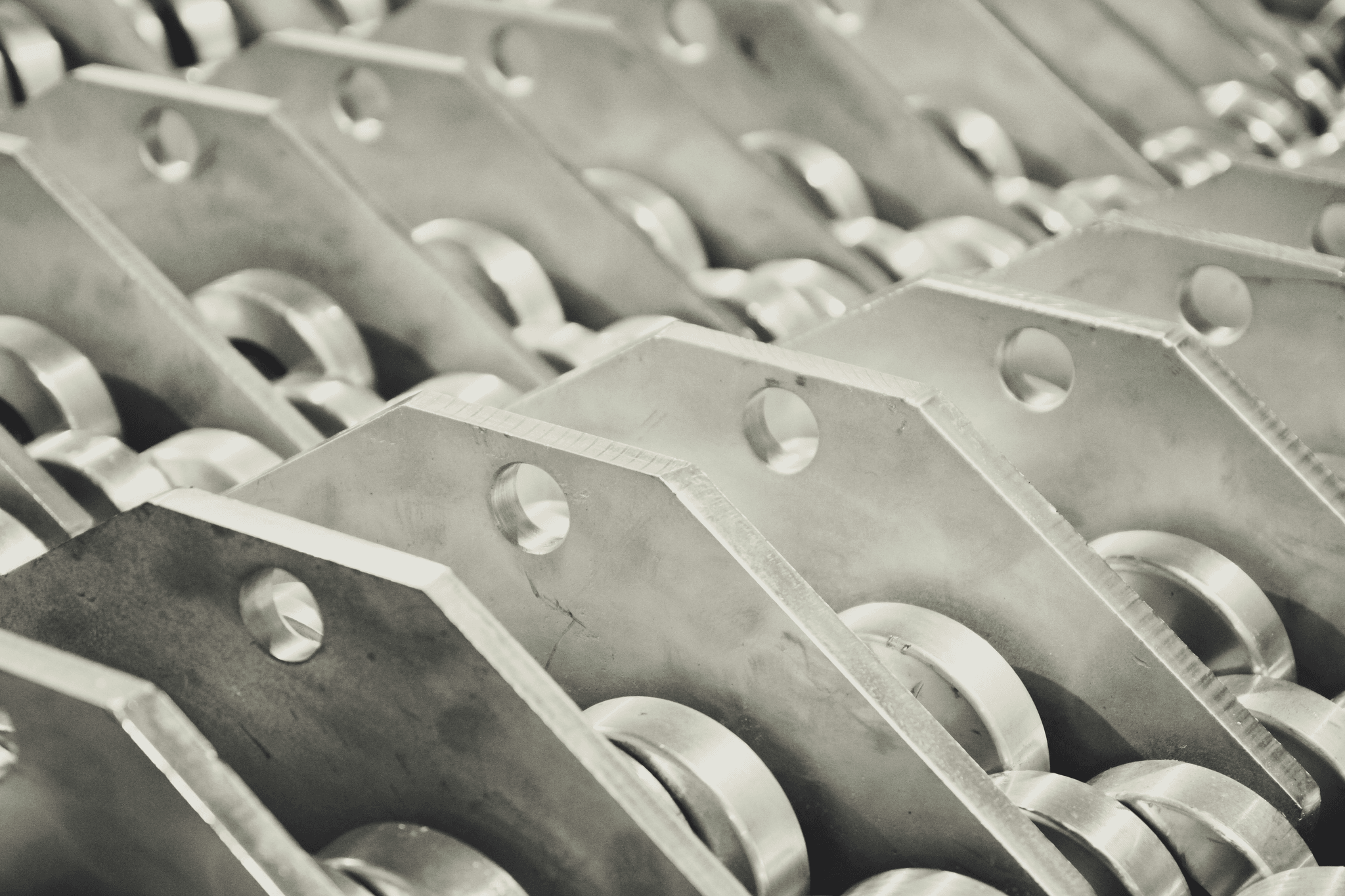Introduction

When it comes to high-precision die casting, the choice of material is crucial. Two popular options are aluminum and alloy steel, each with its own unique properties and advantages. Understanding the differences between aluminum and alloy steel is essential for making informed decisions in die casting processes. In this article, we will explore the importance of material choice in high-precision die casting and compare the expert opinions on aluminum vs alloy steel.
Understanding Aluminum and Alloy Steel
Aluminum is known for its lightweight yet durable nature, making it a popular choice for a wide range of applications. On the other hand, alloy steel boasts exceptional strength, toughness, and heat resistance, making it ideal for demanding industrial applications. Both materials have their own set of unique properties that make them suitable for different die casting needs.
Importance of Material Choice in High-Precision Die Casting
The material used in high-precision die casting plays a significant role in determining the quality and performance of the final product. Factors such as cost-effectiveness, casting quality, surface treatment, and assembly are all influenced by the choice between aluminum and alloy steel. Understanding these implications is crucial for achieving optimal results in die casting projects.
The Expert Opinion: Aluminum vs Alloy Steel
Ningbo Buttler Precision Machinery Co., Ltd., a leading expert in die-casting molds, emphasizes smart part engineering for better part designs to maximize performance and quality while minimizing secondary operations. Their expertise sheds light on the advantages of both aluminum and alloy steel in high-precision die casting processes, providing valuable insights into making informed material choices.
Properties of Aluminum for High-Precision Die Casting

Lightweight and Durable
Aluminum is known for its lightweight nature, making it an ideal choice for high-precision die casting applications where weight reduction is crucial. Its durability also ensures that the final products can withstand the rigors of everyday use, providing long-lasting performance.
High Thermal Conductivity
One of the key properties of aluminum is its high thermal conductivity, allowing for efficient heat dissipation in die-casting processes. This helps in achieving precise and consistent casting results, making it a preferred material for high-precision applications.
Corrosion Resistance
Aluminum's natural corrosion resistance makes it suitable for a wide range of applications, especially in outdoor or harsh environments where exposure to moisture and other corrosive elements is a concern. This property adds to the longevity and reliability of die-cast products.
Properties of Alloy Steel for High-Precision Die Casting

Strength and Toughness
Alloy steel is known for its exceptional strength and toughness, making it an ideal choice for high-precision die casting applications. Its ability to withstand heavy loads and resist deformation makes it a reliable option for producing durable and long-lasting parts.
Additionally, alloy steel's high resistance to wear and tear makes it an excellent choice for applications where parts are subjected to constant friction and abrasion. This wear resistance ensures that the components made from alloy steel maintain their integrity and functionality over extended periods, reducing the need for frequent replacements or repairs. As a result, manufacturers can rely on alloy steel to deliver consistent performance in demanding environments.
Wear Resistance
One of the key advantages of alloy steel in die casting is its impressive wear resistance. This property ensures that the parts produced with alloy steel are able to maintain their integrity and functionality even under harsh operating conditions, making them suitable for a wide range of industrial applications.
Additionally, alloy steel's wear resistance also contributes to longer part life and reduced maintenance costs, making it a cost-effective choice for die casting applications. This durability allows for extended use in high-wear environments without sacrificing performance, providing a reliable solution for demanding industrial settings. As a result, alloy steel parts are able to withstand abrasive conditions and maintain their structural integrity over time, ensuring consistent functionality and longevity.
Heat Resistance
Alloy steel exhibits excellent heat resistance, allowing it to retain its mechanical properties even at elevated temperatures. This makes it a preferred material for die casting applications that involve exposure to high levels of heat, ensuring the longevity and reliability of the manufactured parts.
Alloy steel's heat resistance also makes it an ideal choice for applications in the aerospace industry, where components are subject to extreme temperatures during flight. Whether it's engine parts or structural components, alloy steel's ability to maintain its strength and durability at high temperatures ensures the safety and performance of aircraft. Additionally, in the automotive industry, alloy steel is used for manufacturing parts such as turbocharger turbines and exhaust systems, where exposure to heat is a constant factor. This highlights the versatility of alloy steel in withstanding thermal stress and maintaining its integrity in demanding environments.
Applications of Aluminum in Die Casting

Automotive Parts
Aluminum is widely used in the automotive industry for die casting due to its lightweight and durable properties. From engine components to structural parts, aluminum alloy vs steel offers a cost-effective solution without compromising on strength and performance. Its high thermal conductivity also makes it ideal for heat dissipation in vehicle systems.
In addition to its lightweight and durable properties, aluminum is also highly corrosion-resistant, making it an ideal material for automotive parts that are exposed to harsh weather conditions. This not only extends the lifespan of the components but also reduces maintenance and replacement costs for vehicle manufacturers and owners. Furthermore, the versatility of aluminum allows for intricate designs and complex shapes to be easily achieved, providing greater flexibility in the production of automotive parts.
Outdoor Lamp Series
In the outdoor lighting industry, aluminum alloy vs steel is a popular choice for die casting due to its corrosion resistance and ability to withstand harsh weather conditions. Aluminum parts provide excellent durability and aesthetics for outdoor lamp series, making them a preferred material for manufacturers looking for long-lasting and low-maintenance solutions.
Aluminum alloy outdoor lamp series offer a sleek and modern aesthetic that complements any outdoor space, whether it's a residential backyard or a commercial plaza. The lightweight nature of aluminum also makes it easier to install and maintain, reducing overall costs for manufacturers and end-users alike. Additionally, the malleability of aluminum allows for intricate designs and custom shapes, giving designers the freedom to create unique and eye-catching outdoor lighting fixtures.
Appliance Parts
Aluminum alloy vs steel is a crucial consideration for appliance manufacturers when it comes to die casting components such as heat sinks, brackets, and housings. The lightweight nature of aluminum allows for easier handling during assembly, while its corrosion resistance ensures longevity in various household environments.
Aluminum alloy's superior thermal conductivity also makes it an ideal choice for heat sinks in appliances, ensuring efficient heat dissipation and preventing overheating. This is especially important for high-performance appliances such as refrigerators, air conditioners, and cooking ranges. By utilizing aluminum heat sinks, manufacturers can enhance the overall performance and reliability of their products, ultimately providing a better user experience.
Ningbo Buttler Precision Machinery Co., Ltd.'s expertise in die-casting molds and smart part engineering can help optimize the use of aluminum in these applications, ensuring high-quality parts that meet industry standards while minimizing production costs.
Applications of Alloy Steel in Die Casting
Gas Appliance Parts
Alloy steel is widely used in the manufacturing of gas appliance parts due to its high strength and toughness, making it suitable for withstanding the pressure and heat generated during operation. The durability and wear resistance of alloy steel also ensure that the parts have a longer lifespan, providing reliable performance for gas appliances.
Alloy steel's resistance to corrosion and high temperatures makes it an ideal material for gas appliance parts. Its ability to withstand the intense pressure and heat generated during operation ensures the safety and reliability of gas appliances. In addition, the use of alloy steel in manufacturing gas appliance parts contributes to their overall efficiency and performance, providing a seamless experience for users.
Power Tool Parts
When it comes to power tool parts, alloy steel is the preferred material choice for components that require high strength and heat resistance. Alloy steel can withstand the rigorous demands of power tools, ensuring durability and longevity even under extreme working conditions. This makes it an ideal material for producing tough and reliable power tool parts.
Alloy steel's exceptional strength and heat resistance also make it an ideal material for producing power tool parts that require precision and accuracy. The high tensile strength of alloy steel allows for intricate part designs that can withstand heavy loads and high-speed operation without compromising performance. This means that power tools with alloy steel parts can deliver consistent and reliable results, even in the most demanding applications.
Smart Part Engineering for Better Part Designs
By utilizing alloy steel in smart part engineering, manufacturers can achieve better part designs that optimize performance and quality while minimizing the need for secondary operations. Buttler Precision Machinery Co., Ltd.'s expertise in smart part engineering allows for cost-effective manufacturing, maximizing the potential of alloy steel in creating innovative and efficient part designs. Additionally, alloy steel offers greater strength and durability compared to aluminum, making it an ideal choice for parts that are subjected to high stress or heavy loads. This means that manufacturers can rely on alloy steel to deliver long-lasting and reliable components for a wide range of applications.
Comparison of Aluminum and Alloy Steel in Die Casting

Cost Effectiveness
When it comes to cost effectiveness, aluminum and alloy steel both have their advantages. Aluminum is generally less expensive than alloy steel, making it a popular choice for high-volume die casting projects. On the other hand, alloy steel offers superior strength and durability, which can lead to longer-lasting parts and reduced maintenance costs over time.
Furthermore, aluminum is known for its lightweight properties, making it a preferred material for applications where weight is a concern. This can lead to cost savings in transportation and handling, as well as reduced energy consumption in certain products. On the other hand, alloy steel's superior heat resistance and high temperature strength make it an ideal choice for parts that are exposed to extreme conditions, providing long-term reliability and performance.
Casting Quality
In terms of casting quality, both aluminum and alloy steel have their strengths. Aluminum has excellent fluidity, allowing for intricate and complex shapes to be easily cast with high precision. This makes it ideal for applications where intricate designs are required, such as in the automotive and aerospace industries. On the other hand, alloy steel's superior dimensional stability and heat resistance make it a top choice for components that need to withstand extreme conditions, like those found in heavy machinery or industrial equipment.
Surface Treatment and Assembly
When it comes to surface treatment and assembly, aluminum and alloy steel offer different benefits. Aluminum is naturally corrosion resistant, making it ideal for outdoor applications without the need for additional surface treatments. However, alloy steel can be heat treated to achieve specific hardness levels, providing enhanced wear resistance for parts that are subjected to heavy use or harsh conditions.
Furthermore, aluminum is lightweight, making it an excellent choice for applications where weight is a concern, such as in the aerospace industry. On the other hand, alloy steel offers superior strength and durability, making it suitable for heavy-duty industrial applications where high load-bearing capacity is required. This difference in material properties allows manufacturers to choose the most appropriate material based on the specific requirements of their application.
Conclusion

When it comes to high-precision die casting, the choice between aluminum and alloy steel is crucial. Both materials offer unique properties that cater to specific applications, and making the right choice can significantly impact the performance and quality of the final product. Buttler Precision Machinery Co., Ltd. stands out as an expert in die-casting molds, offering innovative tooling designs and smart part engineering solutions to optimize manufacturing processes.
Making the Right Material Choice for High-Precision Die Casting
Choosing between aluminum and alloy steel for die casting requires careful consideration of factors such as strength, thermal conductivity, corrosion resistance, and cost-effectiveness. Understanding the specific requirements of your application is essential in making an informed decision that maximizes performance and quality.
Buttler Precision Machinery Co., Ltd.: The Expert in Die-Casting Molds
With a focus on die-casting molds, aluminum and zinc castings, processing, surface treatment, assembly, and packaging, Buttler Precision Machinery Co., Ltd. offers a comprehensive solution for high-precision die casting needs. Their expertise in smart part engineering ensures better part designs that optimize manufacturing processes while minimizing secondary operations.
Buttler Precision Machinery Co., Ltd. takes pride in their ability to maximize performance and quality through smart part engineering. By leveraging their expertise in this area, they are able to offer better part designs that optimize manufacturing processes and reduce the need for secondary operations. This results in a more efficient and cost-effective solution for high-precision die casting needs.
Maximizing Performance and Quality with Smart Part Engineering
Smart part engineering is essential for achieving cost-effective manufacturing without compromising on performance or quality. By leveraging innovative tooling designs engineered for high precision die casting, manufacturers can achieve superior results while minimizing production costs.
Smart part engineering also plays a crucial role in ensuring the longevity and reliability of manufactured products. By incorporating advanced materials and design principles, manufacturers can create parts that are not only high-performing but also durable and resistant to wear and tear. This ultimately leads to reduced maintenance costs and increased customer satisfaction, as end-users can rely on the quality and consistency of the products they purchase.

